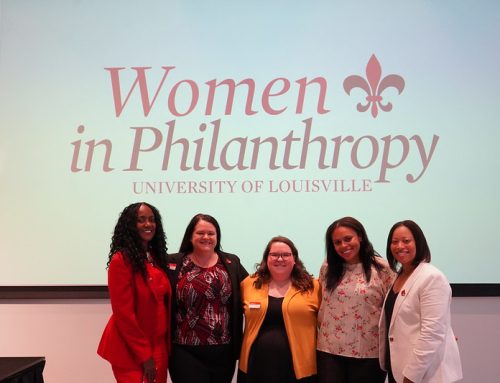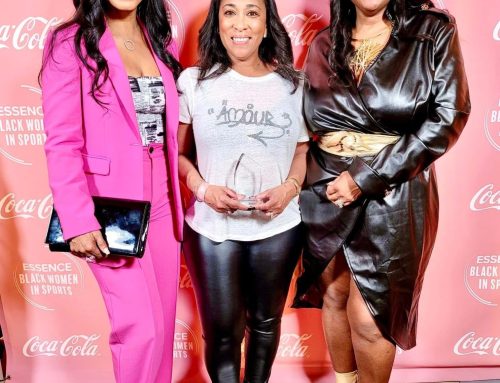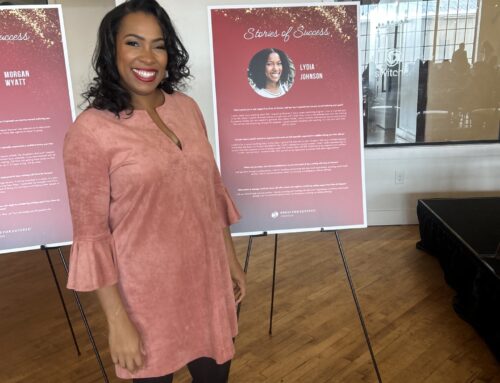
By Chris James
When Ashlee Johnson speaks, her words pulse with lived truth—raw, resolute, and profoundly human. As the founder of the Street Widows Foundation, Johnson is leading a movement born not from charity, but from necessity. A necessity that emerged from a devastating personal loss, shaped by public crisis, and powered by a deep-seated commitment to healing a wounded community.
“I became a widow at 29,” Johnson says, plainly. “I lost my husband Tiwuan to gun violence. After that, I looked around and realized—there just weren’t spaces for people like me. People grieving loss that no one wants to talk about.”
A Mission Forged in Pain
The Street Widows Foundation provides critical resources—financial support, food security, housing assistance, and trauma-informed peer support—to widows and children left behind by gun violence, incarceration, and drug overdose. What started as a podcast, where Johnson shared her grief and invited others into unfiltered conversation, has become a cornerstone nonprofit in the Louisville and Southern Indiana area (Kentuckiana).
“I started by talking,” Johnson recalls. “But I kept running into women who needed more than conversation. They needed help. Real, tangible help. So we built the foundation to meet those needs.”
The Year Everything Changed
For Johnson, 2020 was not just the year of a global pandemic—it was the year everything collapsed and quietly began to rebuild.
“January felt so hopeful,” she says. “Valentine’s Day, I surprised Tiwuan with flight tickets. Four days later, he was gone.”
Weeks after Tiwuan’s death, their young son Ace received an autism diagnosis. The world shut down. Schools closed. Jobs vanished. And yet, strangely, that stillness gave Johnson space to breathe.
“If I’m honest, COVID saved me,” she says. “Losing my job gave me time to figure out what felt good, what felt right. It gave me time to grieve.”
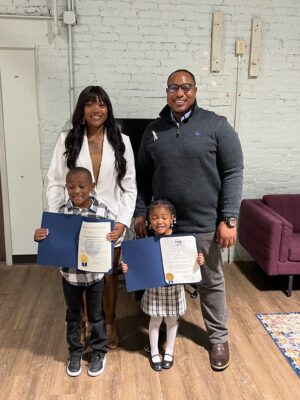
Ashlee’s nonprofit, Street Widows received a proclamation from the City of Louisville in 2024.
The Reality of Street Grief
When she reflects on the grief that underpins the work she does, Johnson describes a weight that’s not easily understood by those outside the community.
“There’s this community grief that never ends,” she explains, her voice tightening. “I cried the entire flight to Puerto Rico after a pregnant mother was shot and killed here. That grief doesn’t require you to know the person—it just lives in your body.”
Street violence, particularly when it involves women and children, leaves more than physical wounds—it leaves emotional scars that alter life trajectories, especially for kids.
“My son Ace was three when his dad died. Now he’s eight, and he wants to be a policeman to catch the bad guys who killed his father,” Johnson shares. “That loss becomes his entire identity, his future. What if that turns into anger or trauma later on? That’s what we’re trying to prevent.”
Advocacy Rooted in Lived Experience
Unlike many advocacy efforts built from theory, Street Widows is rooted in lived truth. And that’s what gives it such deep impact.
“I sit in a space of privilege. I have two degrees. I know how to express what I’m feeling,” Johnson says. “A lot of women in my community don’t. They haven’t had that exposure or education. So I use my voice, because I can. That’s where the courage comes from.”
Through toy drives, public speaking, peer support groups, and podcasts, Johnson continues to open doors for conversations and healing in spaces that historically silenced them.
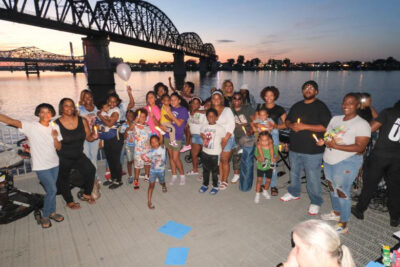
A Street Widows gathering near Louisville’s Big Four Bridge, honoring the lives lost.
Filling the Gaps That Systems Miss
When asked what Louisville needs most to fight gun violence, Johnson is clear: it’s not just about policing—it’s about care.
“We need to meet basic needs—food, housing, money. You can’t ask people to dream bigger if they’re stuck in survival mode,” she says. “Parents need support just as much as their children do. Healing is a family process.”
That’s part of the ethos behind Street Widows’ new initiative, Widows 911, a rapid response program launching soon. It will provide critical support—meals, mental health services, child care, and more—in the immediate aftermath of loss.
“It’s about helping women survive those first days and weeks,” Johnson explains. “Because that’s when the world feels like it’s ending.”
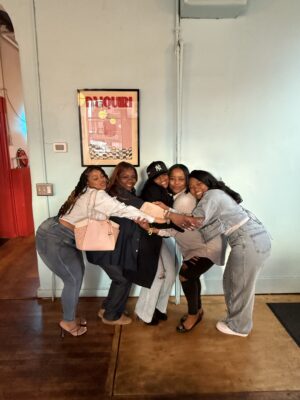
Street Widows participants with Founder Ashlee Johnson.
A Message to the Movers and Shakers
Johnson believes the system has to start asking better questions: Who’s impacted? How many kids were left behind? What does this family need to survive—today?
“We don’t even know the real numbers of children who lose parents to violence. How do you treat a problem you can’t measure?” she asks. “We need public officials, law enforcement, and responders trained in culturally-informed trauma care. We need compassion and understanding—not fear.”
The Man Behind the Movement
Much of the Street Widows Foundation is built in memory of Tiwuan, a man Johnson describes with both honesty and affection.
“He came up in the streets. He was once the shooter,” she admits. “But he was also a lover. A goofball. A father. He wanted out, but he was addicted to the lifestyle.”
If Tiwuan could speak to Louisville’s youth today, Johnson says, he’d tell them the truth: Find another way.
“He knew what he taught these kids, and he regretted it. He wanted better for them. For our son. For all of us.”
Building Back, One Day at a Time
For widows like her, Johnson offers simple, powerful advice: Do one thing a day.
“If all you do is brush your teeth today, that’s enough. Then tomorrow, add a shower. The next day, drink a glass of water. That’s how I came back to life,” she says.
More importantly, she urges women not to walk this road alone.
“Find community. Find us. Street Widows exists so that you don’t have to hold this weight by yourself.”
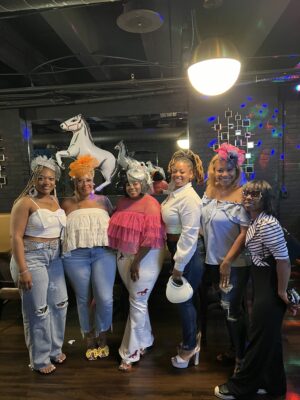
Street Widows participants with Founder Ashlee Johnson
What’s Next for Street Widows
As Street Widows Foundation continues to grow, upcoming events and initiatives include:
- Holiday Healing with Soul Santa – A festive winter event featuring toy giveaways, crafts, hot cocoa, mental health resources, and free photos with Black Santa.
- Peer Support Line Launch – 833-ST-WIDOWS, a 24/7 hotline for immediate emotional and resource-based support.
- 2412 Campaign – A fundraising drive asking 100 donors to give $20/month for 12 months to fund Widows 911.
For more information, visit www.streetwidows.org or follow the foundation on Instagram and Facebook: @StreetWidowsFoundation.
In a world where grief is often buried or sanitized, Ashlee Johnson has chosen to turn hers into a battle cry—a fierce, compassionate call for systemic change, community support, and healing rooted in love. She isn’t just raising awareness—she’s raising hope.

